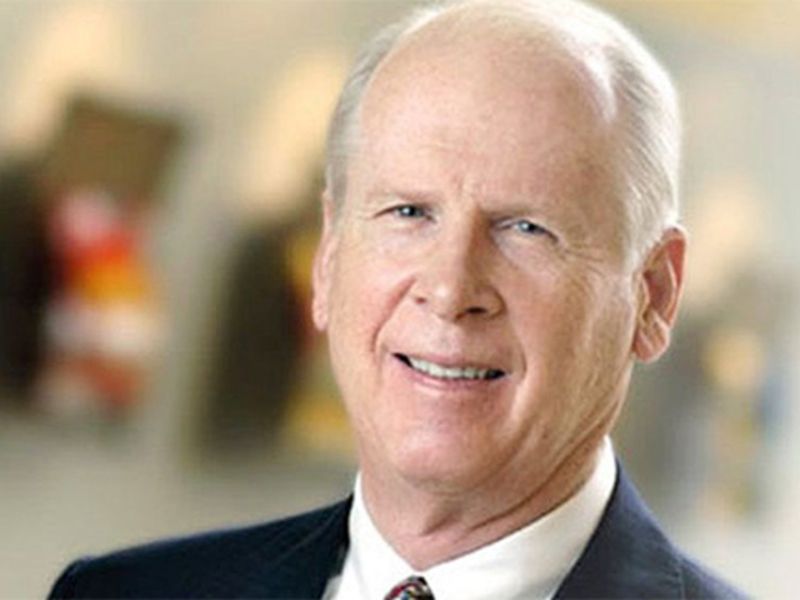
In June, Bob Brockman emailed employees at Reynolds and Reynolds Co. about management changes at the Dayton, Ohio, dealership management system giant.
Brockman, then its chairman and CEO, wrote that he had recently turned 79 and that it was time to plan for the company’s future, according to the memo, which was included in a document federal prosecutors filed last week in a California court, where the former software executive faces charges of tax fraud. In the memo, Brockman wrote that Tommy Barras would become Reynolds’ president and COO and lead a new executive committee, to which leaders who had reported to Brockman would report going forward.
Yet amid the transition taking place within the upper ranks of the privately held company, one key position remained intact: Brockman said he would continue in his post.
“I plan to focus my time and attention on supporting Tommy and our leadership team to position the company for transition and growth beyond my leadership,” he wrote in the memo.
Brockman’s continuation at the helm of the multibillion-dollar company after being diagnosed with what his lawyers said is Parkinson’s disease or Lewy body dementia — and not stepping down until November, after he was charged with crimes — raises questions about the validity of his lawyers’ claims that he is unable to assist in his defense, prosecutors said in their filing last week.
Those defense attorneys this month asked a federal judge to grant a competency hearing, citing a progressive decline that has impeded Brockman’s ability to recall and process information. A grand jury indicted Brockman in October on charges of tax evasion, wire fraud and evidence tampering in what prosecutors allege was an elaborate scheme spanning two decades to evade taxes on $2 billion in income. Brockman has pleaded not guilty.
In a court filing last week, prosecutors called the June reorganization of Reynolds’ leadership the starkest example of “the discrepancy between the picture Defendant presented to doctors, the government, and this Court, and the manner in which he lived his life.”
“While Defendant did say his focus would be on training the new leadership, he informed the new COO that ‘you and I should be talking every day about any decision of importance that is cooking,’ ” prosecutors wrote. “Correspondence like this, during a period in time when his lawyers represented that Defendant was so impaired that he could not assist them, raises considerable question about Defendant’s claim.”
Prosecutors told the court that although they agree a competency hearing is warranted, the court first should establish timelines to produce and evaluate medical records and for independent evaluations of Brockman.
A hearing on the defense’s motion has been scheduled for Jan. 12.
Brockman’s lawyers had not responded to prosecutors’ filing as of press time Friday, Dec. 18, and did not respond to emailed questions from Automotive News. They wrote in their recent motion that their interactions with Brockman were consistent with medical evaluations from four doctors. Defense lawyers wrote that doctors described a scenario called “confabulation,” in which Brockman’s brain will make up details to fill in dementia-related memory gaps.
But prosecutors say the defense’s claims lack context related to the investigation. For instance, prosecutors wrote that Brockman contacted his urologist — who his lawyers said referred him to another doctor after Brockman said he hadn’t felt well for months — to schedule an appointment the day after Bermuda police raided the home of one of his business representatives, Evatt Tamine, on Sept. 5, 2018.
“It is notable that none of his doctors — not his general practitioners, oncologists, cardiologists, or anyone else — noted dementia symptoms until after the authorities executed a search warrant on Tamine’s home,” prosecutors wrote.
Nor, they said, did anyone present at a deposition Brockman gave in January 2019 in civil antitrust litigation involving Reynolds and sworn testimony that September in a separate antitrust case report observing such difficulties. Prosecutors said those events happened “within weeks” of medical evaluations by the doctors Brockman’s lawyers referenced in court filings.
Defense lawyers, however, wrote in their earlier motion seeking the competency hearing that Brockman did not seek out the medical evaluations as a result of the investigation. He did not even tell his defense lawyers about his diagnosis until June 2019 and only did so to explain that he may have difficulty understanding questions and information provided to him, they wrote.
Reynolds has declined to comment about when the company was informed of Brockman’s diagnosis or answer any questions related to his health.
Separately, U.S. District Judge William Alsup is weighing whether to grant the defense’s request to transfer the case to Texas, closer to Brockman’s home in Houston. Alsup said during a hearing last week that he did not know when he would decide the issue.